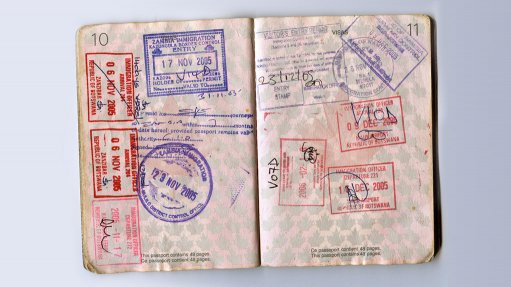
Photo by: Wikimedia Commons
Noting “with concern” complaints that the newly introduced visa regulations for those wishing to travel to South Africa had over-bureaucratised the application process and staved off the influx of tourists, President Jacob Zuma has announced the establishment of a Ministry-led panel to investigate the unintended consequences of these regulations on various sectors, including tourism and investment.
The InterMinisterial Committee on Immigration Regulations would be chaired by Deputy President Cyril Ramaphosa and comprise the Ministers of Home Affairs, Tourism, Trade and Industry, Social Development and Small Business Development, he told the media on Tuesday.
Reuters reported last month that South Africa's second-quarter tourism business index had dropped to its lowest level in nearly four years owing to the new visa restrictions.
New legislation requiring foreigners to provide biometrics when applying for visas and parents to carry unabridged birth certificates when travelling with children contributed to a drop in tourism activity, the Tourism Business Council was reported as saying at the time.
According to the report, the tourism sector posted an index score of 83.6 in the second quarter, down compared with 99.9 in the first quarter and the lowest score since the third quarter 2011. An index score of 100 was regarded as an indication of normal levels of trade.
South African Statistician General Pali Lehohla, meanwhile, confirmed earlier this month that the new immigration requirements, which came into effect on June 1, had caused the number of Chinese visitors to the country to drop by 38%.
But Home Affairs Minister Malusi Gigaba remained resolute in defence of the visa laws, saying in July that the new legislation may dent tourism in the first year they applied, but would not damage the vital sector long term.
"We don't think we should be so ambitious as not to expect a drop. Every country balances its voracious desire for tourists with the desire to secure the country. That is what we are trying to do – to balance the economic and security imperative," Reuters quoted him as saying.